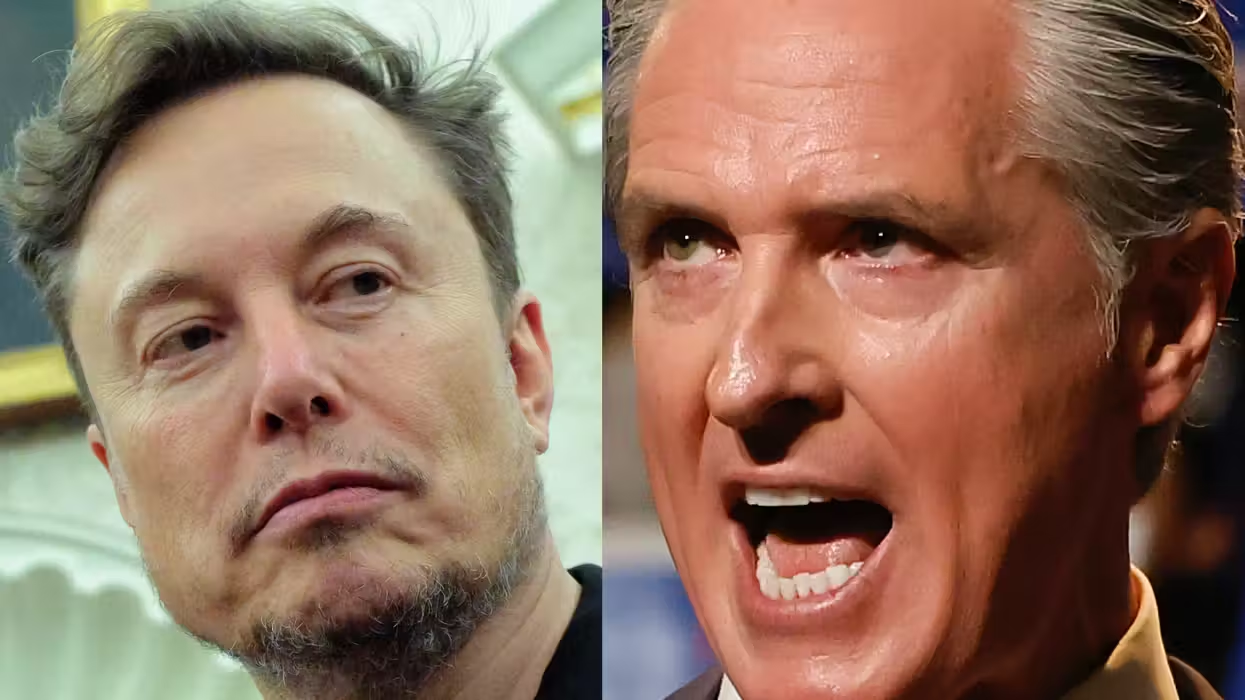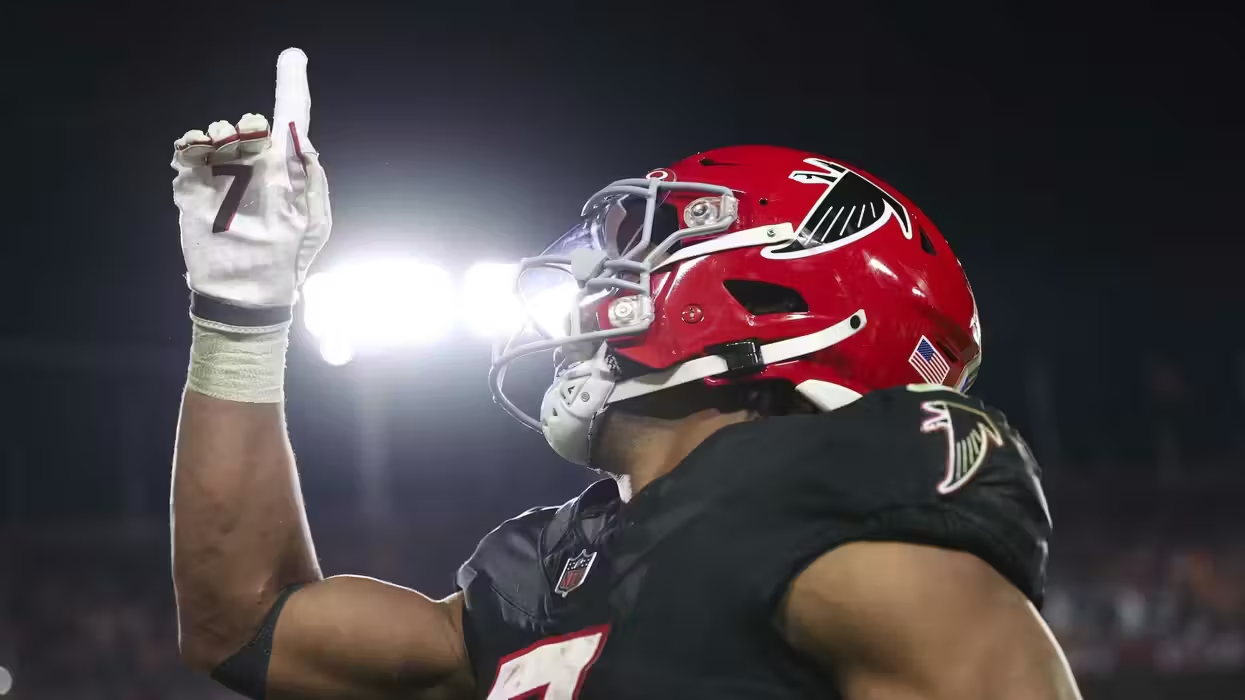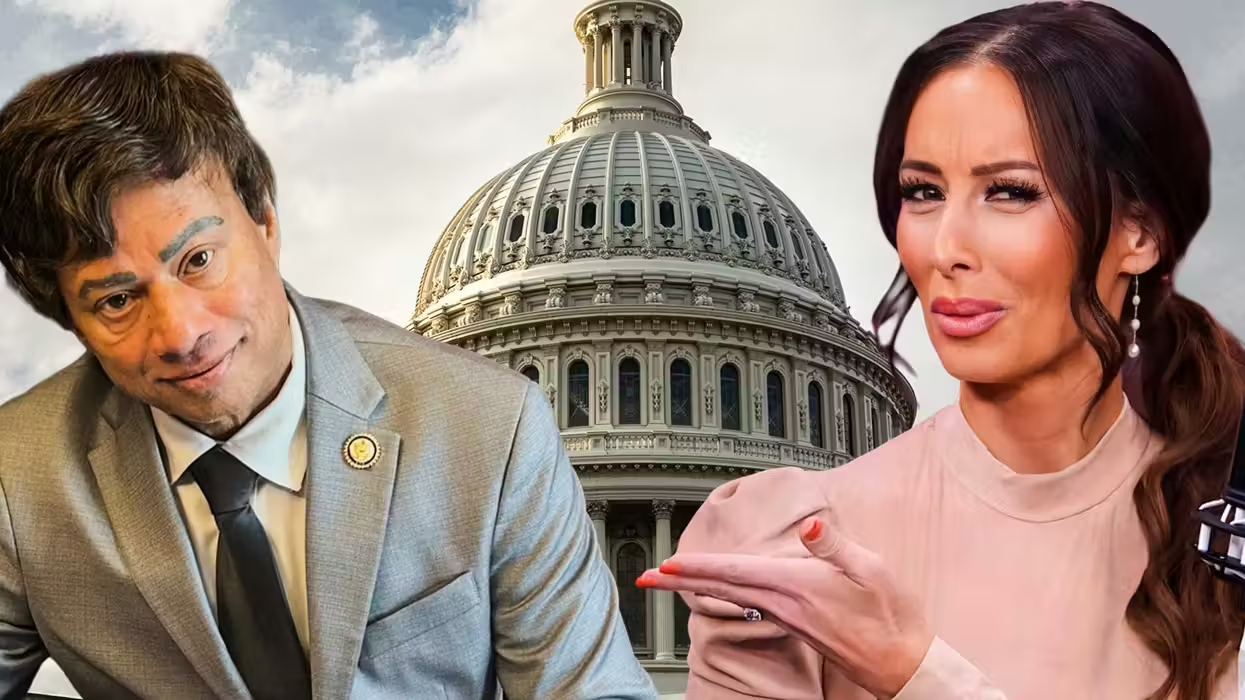© 2025 Blaze Media LLC. All rights reserved.
It's the apparent infusion of the country's historic anti-socialist sentiment and religion that has killed Americans' ability to compromise, Washington Post columnist Richard Cohen writes today. "American exceptionalism" and its "culture of smugness," he claims, is now a centerpiece of the modern-day conservative movement and it's dangerous:
For an industrialized nation, the United States has a very high murder rate and, no surprise, a very high execution rate. We have a health-care system cleverly designed to bankrupt the average person and a political system so dysfunctional that we may go into national bankruptcy, blaming one another for spending too much or taxing too little, but not both. God indeed works in mysterious ways.American exceptionalism has produced a dysfunctional education system — more than 14,000 school districts, lots of bad (but job-protected) teachers, oblivious parents and students who are too dumb to know they’re dumb. American eighth-graders score 66 points below their Japanese counterparts in math, yet almost 40 percent of American children think they’re good in math. That figure for Japan is 4 percent.
In essence, I think Cohen is confusing American exceptionalism -- an idea based on America's revolutionary ideals of liberty, egalitarianism, individualism populism and laissez-faire government -- and manifest destiny, the idea that America has a provincial duty to spread these ideals.
In contrast, I would argue that its been Americans' modern dismissal of these ideals which have led us down the path which Cohen rightly objects to.
I think the only one truly trying to link American exceptionalism and religion is Cohen himself in a vain attempt to smear conservative Republicans who are calling for a return to these historically proven ideals.
To my knowledge, no one on the right is claiming that we should cut our deficit because it's what God would want. But even if they were, is it really so far out of Cohen's realm of thinking to believe that if there be a higher power, that He'd want his children to live freely and not as enslaved debtors?
Aside from Cohen's flawed reasoning, he also offers a... er, unique (?) interpretation of exceptionalism in the context of American history:
The huge role of religion in American politics is nothing new but always a matter for concern nonetheless. In the years preceding the Civil War, both sides of the slavery issue claimed the endorsement of God. The 1856 Republican convention concluded with a song that ended like this: “We’ve truth on our side/ We’ve God for our guide.” Within five years, Americans were slaughtering one another on the battlefield.
Therein lies the danger of American exceptionalism. It discourages compromise, for what God has made exceptional, man must not alter. And yet clearly America must change fundamentally or continue to decline. It could begin by junking a phase that reeks of arrogance and discourages compromise. American exceptionalism ought to be called American narcissism. We look perfect only to ourselves.
"Is Cohen seriously arguing that Republicans should have compromised on the issue of slavery? That the Civil War was the fault of Republicans for opposing continuing enslavement of human beings?" Hot Air's Ed Morrissey asks.
National Review's Ramesh Ponnuru adds: "Does Cohen really want to maintain that the Republicans of the 1850s should have been more willing to compromise on slavery? Is this what liberalism has come to?"
Want to leave a tip?
We answer to you. Help keep our content free of advertisers and big tech censorship by leaving a tip today.
Want to join the conversation?
Already a subscriber?
more stories
Sign up for the Blaze newsletter
By signing up, you agree to our Privacy Policy and Terms of Use, and agree to receive content that may sometimes include advertisements. You may opt out at any time.
Related Content
© 2025 Blaze Media LLC. All rights reserved.
Get the stories that matter most delivered directly to your inbox.
By signing up, you agree to our Privacy Policy and Terms of Use, and agree to receive content that may sometimes include advertisements. You may opt out at any time.






